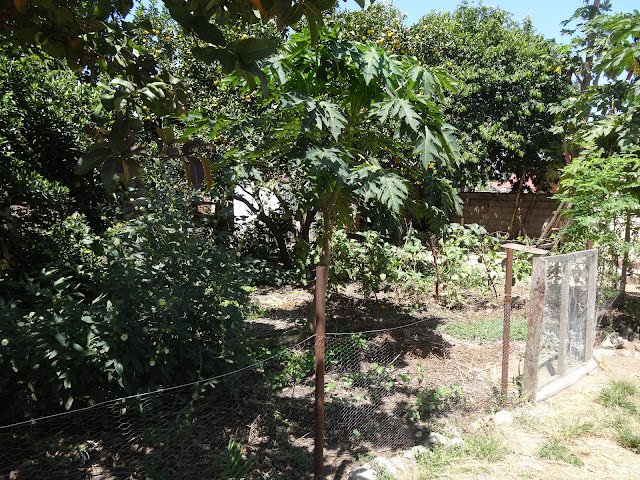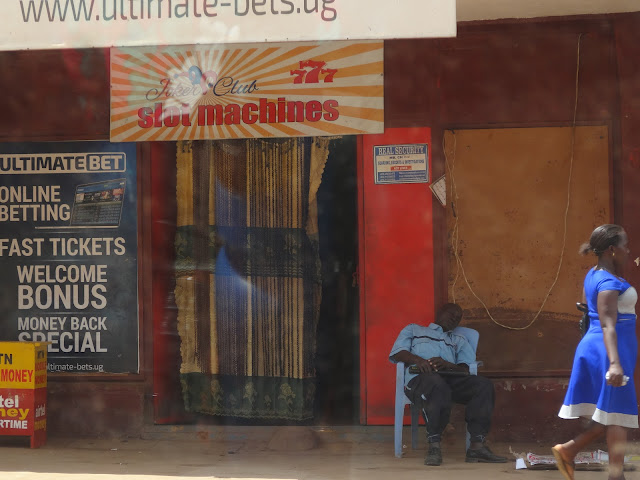I have been enjoying introducing "The Earth is the Lord's" Bible studies in various communities and churches. It is always encouraging to see people learn how to read and study God's word for themselves. If you haven't had a chance to read about the curriculum yet, you can look at this page, where it is also available for download.
It seems that the most challenging aspect for many people is making a plan for how they can put what they learned into practice. Although it is easy to see ways they want to change, in general, like: "Because of what I learned from Proverbs 12:10, I will treat my animals well and make sure they are well cared for", it is much more difficult to make that plan specific, such as saying: "Because of what I learned...I will build a better shelter for my animals this week so they don't get wet when it rains."
One group of pastors I meet with regularly, in Owalei (near Soroti) always has volunteers act as secretary to write down in Ateso the main points they learn from each passage. So far, we are about halfway through the Bible study curriculum and it gives me joy to see how well the participants have picked up on the Bible study method and their interest in putting what they learn into practice. Many have made plans to go home and teach their family members or children about the Bible passages we study together.
You'll hear more about our trip to Kotido from Anthony in a couple weeks, but while we were there, I introduced the Bible study method to some women from Karamoja Pastorate (Karamoja is the region and Kotido is a town). In a future visit, we'll spend time on "The Earth is the Lord's" Bible studies. Some of the women are church leaders from around Karamoja and others are the wives of pastors who are participating in Anthony's TLT group.
One of the biggest challenges of this Bible study group was that we had 3 different languages represented: English, Luo, and N'Karamajong. Therefore, there was translation into 2 languages at once the whole time. Here's a video to give you a little of an idea of how that went:
Nevertheless, the ladies were really enthusiastic about the studies and didn't want to stop sharing what they had learned from the different passages or what they were going to do to be obedient to what God taught them. Many of them made plans to visit and encourage the sick from their churches or to bring food to their neighbors in order to show them the love of God. At the end, one of the women encouraged all of them, whether they are church leaders or not, to take this new knowledge home and at least teach their children how to study the Bible for themselves.















































